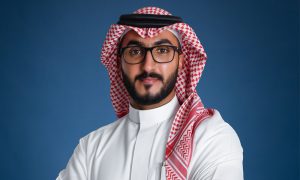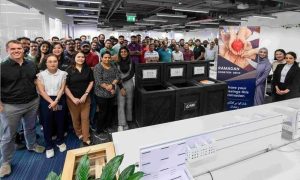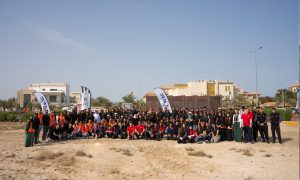A nation’s development
Zahid Group’s Amr Khashoggi says that ease of doing business in KSA has signficantly improved

Several minutes into our discussion about economic diversification, foreign investment in Saudi Arabia and creating employment opportunities for Saudi youth, Amr Khashoggi, VP Group Affairs, Zahid Group, pauses and says: “Remember, Saudi Arabia is a young country. I am a young 62 years old, and I have lived through all the kings of Saudi Arabia, from the founder King Abdulaziz and his sons to King Abdullah.” Khashoggi has witnessed first-hand the Kingdom’s multi-pronged yet “gradual” transformation into an economic superpower on the global stage. He cites as an example the volume of information available today for foreign investors looking to invest in the Kingdom. He says: “In the early days, you would have problems finding accurate data about demographics, utility prices and state of infrastructure. Today, with a few online clicks on several government websites, including that of the Saudi Arabian General Investment Authority (SAGIA ), all the information is there for one and all. Furthermore the Saudi population is very much wired and that drives greater efficiency and new opportunities to accelerate economic activity.” Technology and e-government have allowed Saudi Arabia’s government to standardise the quality of services across the country. “Dealing with the Ministry of Labour used to cost us in waste of precious time, increased levels of frustration and stress, andlack of effective processing of our tasks. Today, 85% of the work is done online without having to visit the ministry,” he says. And Saudi businesses are using technology in a big way to recruit employees, develop business opportunities and launch new products and services. Within Zahid, all the paperwork and workflow is done electronically, which has improved overall business efficiency. The adoption of technology, whether in government or business, is largely driven by youth, and Saudi Arabia is no different. “Fifty percent of our population is under the age of 17,” says Khashoggi. “So a lot of the transformation is being driven by our youngsters.” However, a population mix with a high proportion of young people brings its own challenges.“Being unsettled and unsatisfied is part of being young,” says Khashoggi. “Many of our young feel that a government job is more secure and less demanding. But we need to change this mindset. Through public private partnerships (PPP), we are trying to develop programmes to attract youth to private employment and also provide them with a sense of security.” However, he cautions that companies cannot expect that all Saudis will be trained and competent in the same set of skills. “At the Zahid Learning Centres, we offer soft skills as well as three-year apprentice programmes for blue-collar workers, with guaranteed employment upon graduation,” says Khashoggi. To promote entrepreneurship, the group is providing asset financing to young Saudis who cannot get credit from banks. The Contractors of the Future programme, which was earlier called the Small and Micro Enterprise Programme (SMEP), aims to train and help individuals and small enterprises who want to establish themselves as contractors within the Kingdom but lack the capital to do so. In the field of construction equipment, sold through Zahid Tractor, this means that SME contractors can purchase certain items ofequipment with reduced finance rates – the kind of machines that will help them get a start in the construction industry. Many well-established private sector employees volunteer to be mentors, working with the young people on business plans to help them turn ideas into commercial ventures. “SMEs are going to be the answer to any unemployment problem, as 80% of employment is usually provided by SMEs and not by large corporations like Zahid,” explains Khashoggi. He also believes that it is important to encourage employers to hire persons with disability. As part of its Corporate Social Responsibility (CSR), Zahid is a founder of a non-profit called Qaderoon Business Disability Network. “We aim to catalyse employers to recruit, train, retain and include job seekers with disabilities as equal effective members of the workforce, through disability-confident work environments and advocating favourable government policy. We offer employers appropriate guidance and best practices,” says Khashoggi. “Employees with disability have proven to be highly productive and loyal. Hiring them will also contribute to the employment of the Saudi population.” More importantly, the job market needs to be more open and transparent. “Employers should allow job seekers to learn about career opportunities, and job seekers should be visible and demonstrate their abilities, knowledge and willingness to work,” he notes. But the question is whether the education system in the Kingdom is geared up sufficiently to supply the job market. In the past, the skills that were developed through the education system didn’t map with the job requirements, which meant that the country found itself with a deficiency of engineers, doctors, nurses and technocrats. “But through the reforms of the education system that are underway, the scenario is changing. The reforms are addressing the weak links by raising the quality of teachers and curricula that reflect the crucial competencies needed to find a career in the Kingdom or anywhere else,” he says. The Zahid VP continues: “Our educational system needs to teach students to think and innovate. Teachers need to be trained and updated with theinstructional best practice employed in the best schools in the world. The private sector can help by having internships, mentoring and training, and retraining, which is something that we are doing in our company.” Zahid is a partner in Global Gypsum Company, 3G, which has initiated a programme wherein the company goes to industrial colleges across the Kingdom and interviews students in their final year to try and identify their weak areas. The Company then works with the colleges to address those areas, complemented by its own learning centres. Khashoggi believes that offering Saudi students scholarships to study abroad is the key to introducing the best educational culture in the Kingdom. By sending Saudis abroad to study, they will be exposed to different ways of doing things and interact with professional people with whom they can forge business relationships. But the fact remains that there is a mismatch in terms of matching the graduates with jobs back home. He says: “What I am trying to work on now is to catalyse our private sector to use their special relationships with leading companies in the US and the UK to create internship opportunities for Saudi scholarshipstudents. This will help them hit the ground running when they come back to their country.” The empowerment and employment of women has taken a turn for the better under the reforms initiated by King Abdullah. Saudi women now have greater access to education, scholarships and employment. The e-government initiative has also improved the situation for Saudi businesswomen. Earlier, they had to have an agent to carry out their business, but now they can do it themselves online, from renewing social insurance of employees to applying for municipal licences. In the context of education, Khashoggi believes that women are being taught with a greater diversity of skills. Being a member of the Advisory Board of the all-female Effat University, he observes that female students are great learners and hold tremendous potential to be taught scientific and engineering skills. And making up half of society means Saudi women should be given opportunities for employment. “We have been doubling the number of women working in Zahid over the past six years,” he says. “They work in administration, finance, IT and HR, but we are expanding opportunities for them to work in technical and engineering positions. We made history last summer at our group company Altaaqa Global, where we had four electrical engineering students from Effat University interning the whole summer in the field, and theywere impressive. We hope they will join us full-time when they graduate.” As Saudi Arabia charts its future, Khashoggi is certain that the Kingdom’s youth will play an increasingly important role in determining the course. “As a young country, we have accomplished a lot in the past 30-40 years, but we still have a lot of ground to cover,” says Khashoggi. “At the same time, we believe in improving incrementally instead of big jumps. We want to make ourselves more efficient and provide more job opportunities. The only way we can do that is by improving our education system and improving the channels for training young people.” He is also hopeful that Saudi Arabia’s push to transition from an oil exporter to an energy producer will not only create more job opportunities but also centres of knowledge and R&D facilities. “The development of alternative and renewable energy industry will also lead to the improvement of scientific education in the Kingdom,” he notes. “We already have private sector companies fundingresearch work in research universities like KAU ST, whereby they are able to use many of the patents and turn them into business opportunities. A country’s economic vibrancy is measured by the level of patent applications filed, which is increasing in our universities.” Ultimately, Khashoggi believes that, “despite its tender age”, Saudi Arabia has reached an enviable level of stability. “In the past 40 years, we have accomplished a lot, owing to the visionary governance of the leaders of Saudi Arabia. In order to keep pace with the trends of today’s world, however, we must recognise that more ground needs to be covered and that more work needs to be done. We are making inroads into adopting educational, professional and environmental best practices, but we should not rest on our laurels. We Saudis should never stop aiming for our nation to be greater than it was and it is. But, aggressive as we are, there is still merit in growing incrementally, which is gradually but surely.”

























